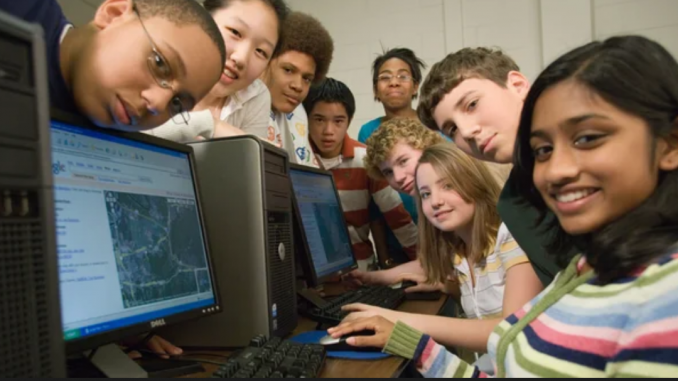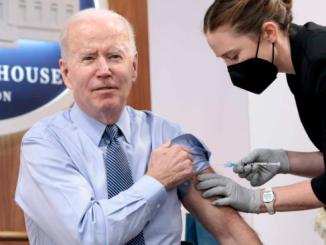
Parents concerned about the leftward tilt of K-12 schools should take a close look at an international organization that is influencing education systems worldwide.
In 2018, the Organization for Economic Cooperation and Development, or OECD, announced its educational goals for the world in a document titled “The Future of Education and Skills: Education 2030.”
Among its recommendations: “Children entering school … will need to value common prosperity” above other concerns, and “curricula should continue to evolve, perhaps in radical ways” that “reflect evolving societal requirements.”
With the viral spread of critical race theory in tandem with gender theory flooding the world’s kindergarten classrooms and up, curriculum has most certainly evolved “in radical ways.”
And most parents who know about it are alarmed.
The Organization for Economic Cooperation and Development identifies two key elements of its radical version of education. One is teaching children about economic change that requires “new economic, social and institutional models” based on “common prosperity.” The other is promoting social evolution arising from “cultural diversity.”
The OECD’s reference to “equitable” economic models is, of course, a barely veiled reference to socialism.
Socialism, however, is not “new.” It is an age-old scheme that promises equality but leaves misery, destruction, and death in its wake. The Organization for Economic Cooperation and Development’s reference to social evolution includes the intentional rise of gender-diverse culture as well as racially divided culture.
And here we are three years later, with this noxious version of education festering all around us.
What This Organization Does
What exactly does the Organization for Economic Cooperation and Development have to do with education?
The OECD is a group of over 35 nations that has ostensibly worked to improve the economic well-being of the world since the end of World War II. It is now a member of the United Nations Global Compact and partners with at least seven U.N. entities, including the United Nations Educational, Scientific, and Cultural Organization, known as UNESCO.
>>> Read this recent Heritage Foundation report: “The Organization for Economic Cooperation and Development: What America Should Do”
The OECD also collaborates with the International Planned Parenthood Federation, the Open Society Foundations founded by political activist George Soros, and the Bill & Melinda Gates Foundation.
In a document called “Global Competency for an Inclusive World,” the OECD says:
The skills, attitudes and values that shape human behavior should be rethought, to counter the discriminatory behaviors picked up at school and in the family. …
All young people should be able to challenge cultural and gender stereotypes, to reflect on the causes and solutions of racial, religious and hate violence and to help create tolerant, integrated societies.
This is a stunning admission. The Organization for Economic Cooperation and Development intends to foster widespread rethinking of the values children learn in their families, in order to uproot gender and cultural stereotypes with a focus on racial hate, all in the name of “tolerance.”
Data Collection and Testing
One of the major initiatives of the Organization for Economic Cooperation and Development is facilitating testing and data collection in schools all over the world. This information may be used to craft students into “good global citizens.”
When the OECD implemented its Programme for International Student Assessment initiative in 2000, it was strictly a yardstick for academic skills. However, in 2015, the organization switched its emphasis from academic testing to assessing students’ social and emotional skills.
Since virtually everyone is in favor of increasing children’s social and emotional skills, most schools jumped on board.
But then the OECD’s definition of “social and emotional skills” began to unfold. Instead of referring to things such as kindness and empathy, the term also began to refer to what were dubbed “global social skills,” including students’ “attitudes and values” in relation to social issues.
As the scope of “global social skills” expands, I argue, it is primed to include attitudes on environmentalism, weapons control, racism, the role of government, family structure, “sexual rights,” national sovereignty, parental rights, religion, equality, and virtually any other social issue.
This cunning expansion into assessing and shaping children’s social attitudes enables the moral—or immoral—grooming of the world’s youngest citizens. Customized digital curricula then can be produced to change the hearts and minds of students in ways that most American parents would oppose.
To Measure or to Alter?
Andreas Schleicher, director of the Organization for Economic Cooperation and Development’s Directorate for Education and Skills, offered an example in 2012 of how the OECD not only measures but changes attitudes on a societal scale:
Data transformed some of the beliefs and paradigms underlying German education. For example, traditionally the education of the very young children was seen as the business of families and you would have cases where women were seen as neglecting their family responsibilities when they sent their children to [preschool]. PISA [the Programme for International Student Assessment] has transformed that debate and pushed early childhood education right at the center of public policy in Germany.
Consider that carefully. Education of young children in Germany previously was seen as the purview of families, especially mothers.
Now, thanks largely to the OECD’s Programme for International Student Assessment, the education of the very young is seen as a state responsibility. The OECD holds this up as a shining example of the fundamental change that it and its partners can bring to pass.
The United States and other nations should defund the OECD’s corrupt education initiatives. Parents and others in local communities should control decisions on how best to educate their children.
*story by The Daily Signal


